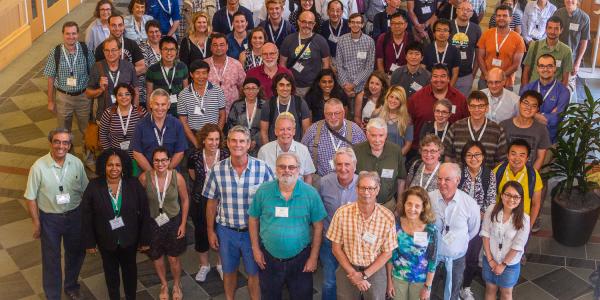The Photosynthetic Antenna Research Center (PARC) has officially ceased operations.

Founded in 2009 and renewed in 2014, PARC received a cumulative investment of more than $34 million from the DOE. PARC’s overarching goal was to accelerate the scientific breakthroughs needed to build a 21st century energy economy.
“PARC made important discoveries in the area of how the light collection systems work in natural photosynthetic organisms and also how artificial systems inspired by the natural systems can be devised and constructed,” said Robert E. Blankenship, Lucille P. Markey Distinguished Professor of Arts and Sciences Director and Principal Investigator of PARC.
The center brought together a core group of Washington University researchers along with several other select scientists from academia, and national laboratories to produce an international interdisciplinary team, focused on the scientific groundwork needed to meet the global necessity for abundant, clean, and economical energy.
“Beyond the labs, PARC brought people together from institutions all over the world,” said Himadri Pakrasi, PhD, the Myron and Sonya Glassberg/Albert and Blanche Greensfelder Distinguished University Professor and Director of the International Center for Energy, Environment and Sustainability (InCEES). “It will be fascinating to track the legacy of work conducted by the faculty and students affiliated with this amazing enterprise.”

“We were very pleased that the PARC outreach programs were so highly appreciated,” said Blankenship. “That success is due entirely to the great work of Rachel Ruggirello, the PARC Outreach Coordinator, and others at the Institute for School Partnership, led by Vicki May. The outreach efforts were also highly appreciated by DOE.”
As the DOE funding concludes and the work of PARC is absorbed by InCEES and transferred into subsequent projects, laboratories and classrooms, PARC’s innovations will continue to have impact both in the St. Louis region and through our global partners for many years to come.




